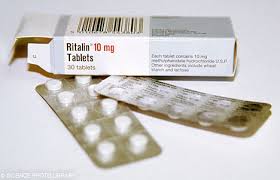5 Facts about Stimulants that You Didn’t Know

Stimulants can lead to aggression, violence, hallucinations and other negative side effects.
Stimulants seem to fit in nicely with today’s fast-paced lifestyles, providing that needed energy boost to get through the day. Over time, a person’s fast-paced lifestyle may grow to depend on the effects of stimulants more than he or she intended. Data collected by the Substance Abuse and Mental Health Services Administration show well over two million American met the criteria for stimulant addiction.
Before long, casual users may find themselves switching to a stronger stimulant with little to no reservations. Unfortunately, these casual users eventually experience a few unknown facts about stimulants as addiction slowly takes hold.
As with most things in life, the more you know the safer you are. These five little known facts about stimulants may be all that stands between your next dose and an addiction-free lifestyle.
Facts about Stimulants #1 – Stimulants Cause Brain Chemical Imbalances
Stimulants act directly on the brain’s central nervous system processes. Over time, these drugs weaken brain neurotransmitter chemical functions. After a while, the brain becomes unable to regulate chemical levels in the absence of stimulant drugs.
With prolonged use, neurotransmitter chemical imbalances start to affect vital brain functions, such as:
- Sleep cycles
- Memory
- Emotions
- Reasoning
- Impulse control
Facts about Stimulants #2 – Stimulants Can Cause Psychotic Behaviors
Of all the little known facts about stimulants, the likelihood of taking on psychotic characteristics is one that’s not often talked about. Long-term stimulant use actually causes brain structures to deteriorate. Much of this damage results from what’s known as binging behavior, where a person repeatedly ingests larger and larger doses of stimulants to experience the desired “high” effects.
As brain structures deteriorate, people start to exhibit unusual and often dangerous behaviors that can place themselves and others at risk. Psychotic behaviors associated with long-term stimulant use include:
- Aggression
- Seizures
- Violence
- Paranoia
- Mood swings
- Hallucinations
- Delusions of grandeur
Facts about Stimulants #3 – Stimulants Cause Heart & Respiratory Problems
The “rush” caused by stimulants can last anywhere from four to six hours. During this time heart, blood pressure and respiratory functions undergo tremendous strain. Over time, these effects can cause the following conditions to develop:
- Heart failure
- Stroke
- Ruptured blood vessels
- Irregular heartbeat
Any one of these conditions can result in death, especially in cases when binging behaviors become a regular practice.
Facts about Stimulants #4 – Immune System Problems
With long-term stimulant use, immune system functions start to deteriorate as the brain becomes less able to regulate immune system processes. Once a person enters the “burned out” or “fried” stage, colds, flu and infections will happen on regular basis. Lack of sleep and poor eating habits also contribute to ongoing immune system decline.
Facts about Stimulants #5 – Stimulants are Addictive
While this fact about stimulants may seem fairly obvious, not everyone may see it this way. Stimulant substances, such as coffee, nicotine and mini-energy drinks have become everyday products that many people use on a daily basis. What’s not widely known is how quickly the body’s tolerance levels rise. Rising tolerance levels drive people to consume larger and larger doses, especially when it comes to stimulants like cocaine and amphetamines. In effect, addiction takes hold without a person’s even knowing it.



